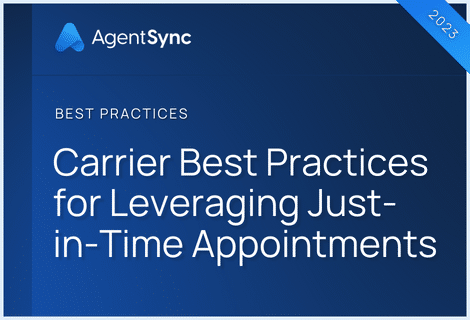

In 1970, several agents, carriers, and other insurance stakeholders formed the Association for Cooperative Operations Research and Development (ACORD), a non-profit industry-owned organization meant to serve as the global standards-setting body for the insurance and related financial services industries.
ACORD has since developed electronic standards, standardized forms, and tools to support their use. ACORD members worldwide include hundreds of insurance and reinsurance companies, agents and brokers, software providers, financial services organizations, and industry associations. All contribute to a deposit of knowledge that aims to streamline and strengthen the industry.
Unfortunately, the reality is, despite the work ACORD has put in to establish best practices both in the analog and digital ages, communication channels between agencies and insurance carriers haven’t improved much since ACORD started. Now more than ever, digital tools and the migration of insurance licensing requirements to a fully electronic format have the potential to make doing business in the industry easier. Still, the potential has yet to be realized.
Although insurance carriers typically each require the same information to contract and appoint an agency or the agency’s contracted agents, the forms used by each carrier to obtain the information vary widely, and most carriers require agents to only use their unique forms.
If insurance carriers agreed to accept ACORD standard forms in the contracting/appointment process, this would go a long way toward streamlining the communication of requests for appointment and information between agencies and carriers. The following are a few practices that could transform the way they do business for the better.
Agency adoptions
To streamline this process, agencies could implement the following changes to their digital tech stacks and general processes.
Technological changes:
- Agency licensing admins should be able to autofill carrier-specific forms from field values in the agency’s contact management software.
- Agency licensing admins need an e-signature tool integration to obtain required signatures from agents on carrier-specific appointment paperwork.
- Agency technology should include integrations that are capable of taking carrier submission requests and using them to update the agency contact management software automatically, including updating the appointment status. This should also include carrier updates for appointments in Registry states – states where carriers are not required to submit appointments to the state and where those appointments won’t be synchronized to or tracked by the NIPR Producer Database (PDB).
- Using verification data such as agent and agency NPNs, change codes, and lines of authority, agency licensing admins should track updates to carrier appointment submission statuses such as new appointments or terminated appointments through NIPR’s PDB.
- Agency licensing admins will need to be able to use dashboards to provide agents with digital reports on carrier appointment submissions and statuses.
Possible process changes:
- Agency licensing admins should store carrier-specific form templates, which are required by each carrier to request appointments, for both the agency as well as the agents contracted under the agency.
- Agency licensing admins will need to be able to bundle carrier appointment paperwork and supporting documentation to submit electronically to insurance carriers via email or technological integrations with carriers and retain the bundle for the agency’s records.
- Agency licensing admins should obtain and store a “hard copy” of agents’ state licenses so they can be included in the appointment paperwork bundle when required by an insurance carrier.
- Agencies should standardize the language they use with carriers (as well as the objects they use in their relevant tech) to identify each state requested for appointment with a specific carrier related to an agency or a field agent and allow the agency licensing admin to individually track the status of each state included in the submission. Our suggested language for each step of the process would be:
- Submitted
- In Good Order (IGO) with Carrier/Not In Good Order (NIGO) with Carrier
- Pending New Business
- Pending with State
- Declined/Approved by State
- Terminated
Carrier changes
While the agencies have a lot of work to do to make co-work easier, carriers can further improve the process with these best practices:
Process
- Carriers should adopt available ACORD forms as the forms they require to be completed to request appointments.
- Carriers should use the NIPR Entity Info Report to identify an agent’s active licenses and no longer require copies of the licenses from state websites.
- Carriers should communicate with agencies to confirm when the appointment request is received and provide regular status updates about the request using the following statuses as well as relevant information related to the status:
- Submitted
- In Good Order (IGO)with Carrier/Not In Good Order (NIGO) with Carrier
- Pending New Business
- Pending with State
- Declined/Approved by State; Terminated
Tech
- Carriers should be set up to receive daily NIPR PDB alerts to identify appointments approved by the states in a timely manner.
- Carriers should adapt their systems to ACORD-standardized fields to ingest agency data.
Of course, MGA/MGU organizations should implement these changes to their processes according to whichever capacity they’re working with in relation to various carrier and agency partnerships.
These changes would go a long way toward making it easier for agencies and carriers to work together and align their insurance distribution channel. They could also give all insurance stakeholders more time and resources to put to work helping grow their collective businesses, all while improving the quality of service for both agents and their end clients.
If you’re interested in other ways you can simplify your distribution channel management, see what AgentSync’s products can do for you today.

